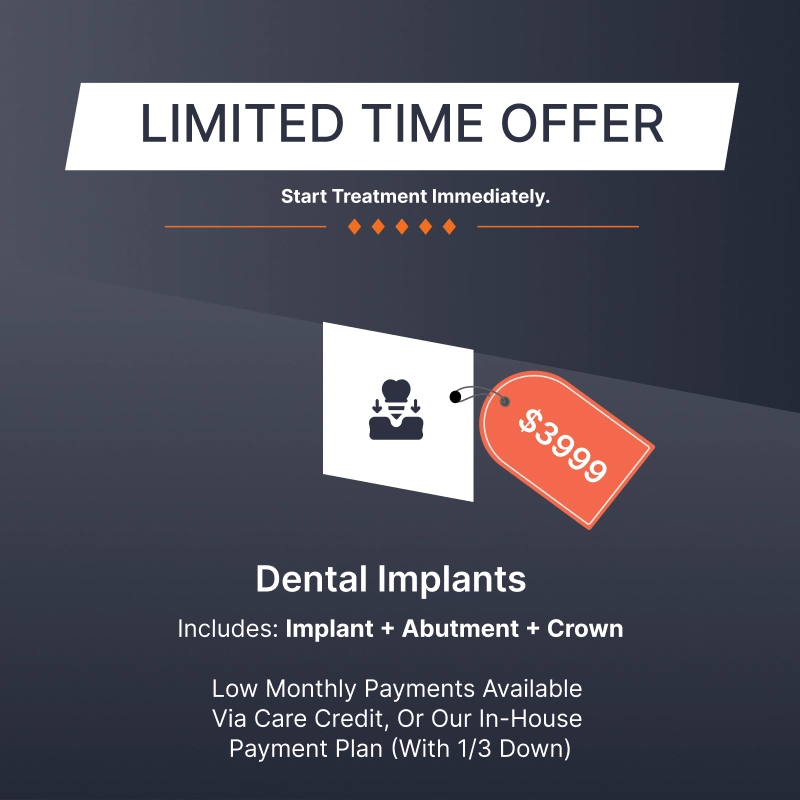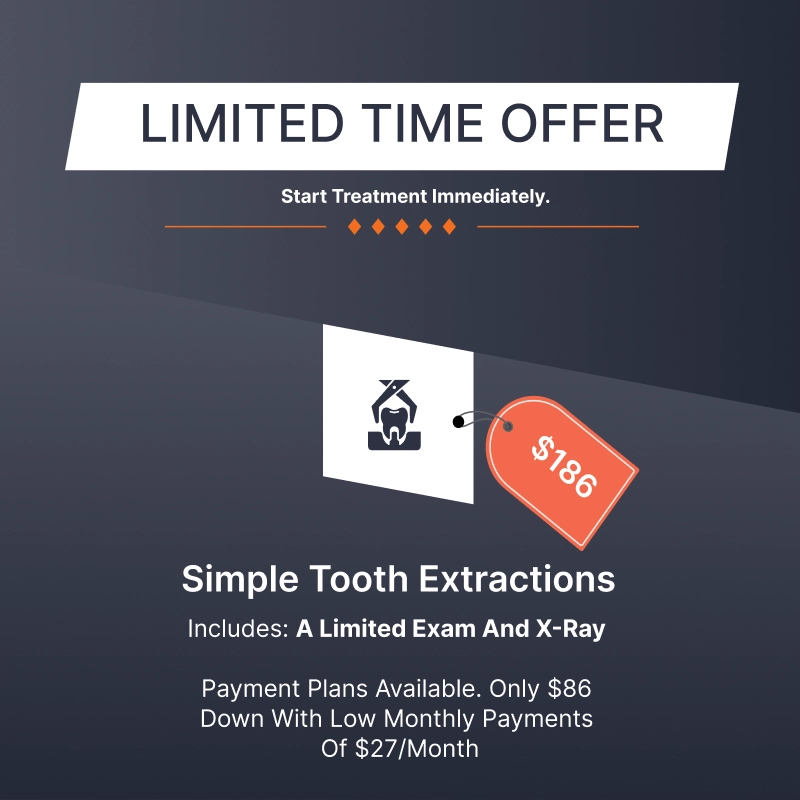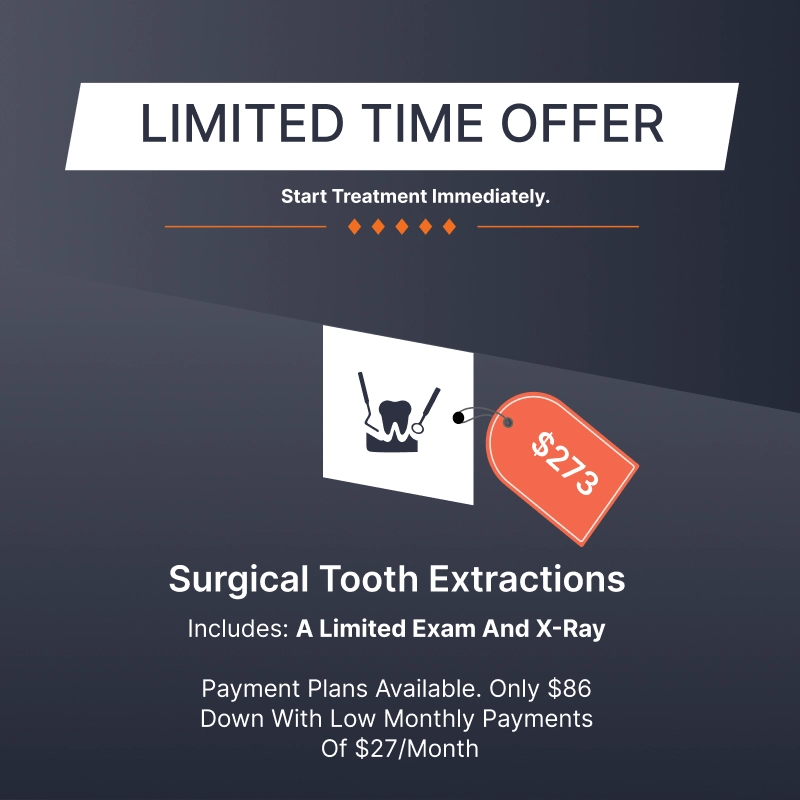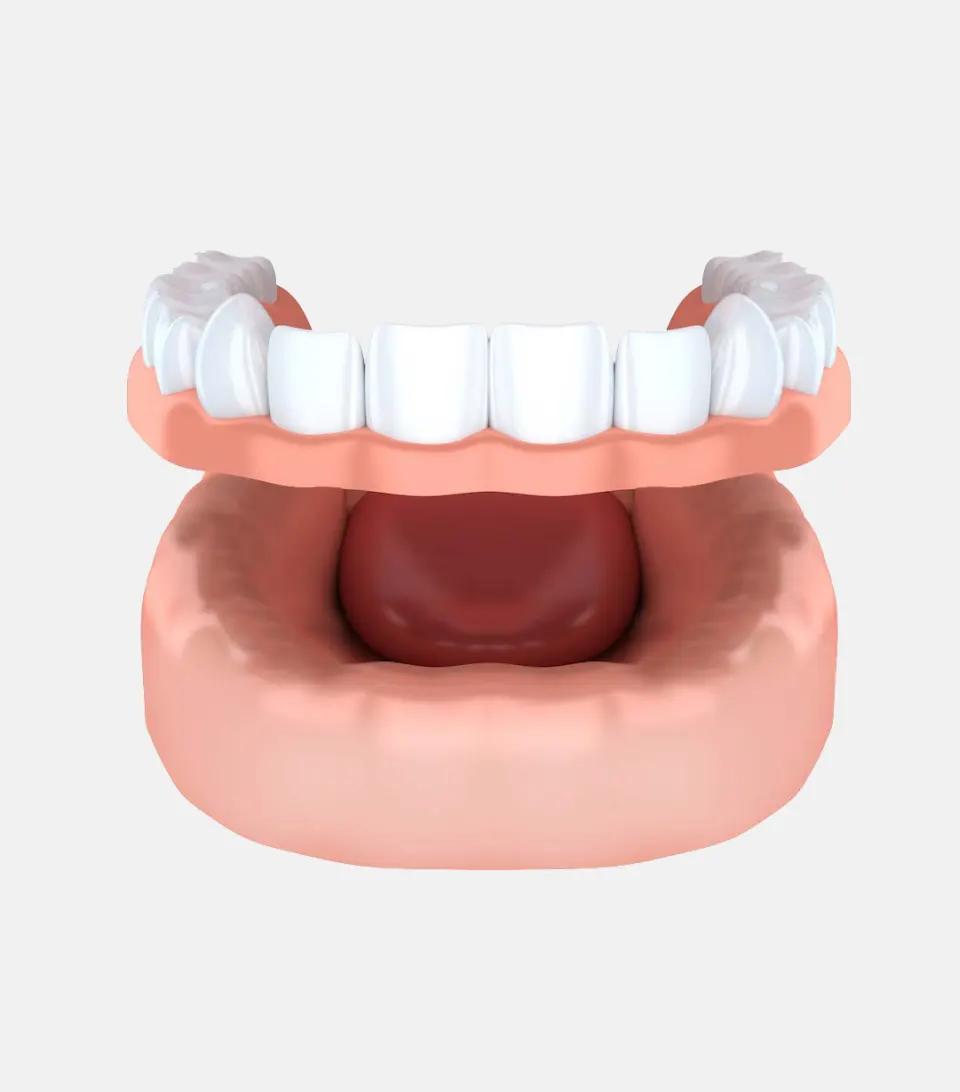One of the most common reasons for tooth loss in adults is gum disease. In fact, not only does it impact your oral health, but it is also an indicator of other systemic diseases, such as diabetes and cardiovascular disease.
Many of our patients at Legacy Dental ask if "It’s possible to get dentures if I have gum disease?". The short answer is yes. In certain cases, the best way to prevent the advancement of gum disease is to remove all of the natural teeth and get dentures.
In this article, we’ll explain more about what gum disease is, how to keep it from worsening, and how dentures can help treat gum disease.
Typically, the first warning sign of gum disease is gingivitis or gum inflammation. This is caused by plaque buildup along the gumline. However, it is important to note that most people experience gingivitis at some point in their lives; it does not always advance to periodontitis or gum disease- as long as it is addressed.
Unfortunately, the primary symptom is bleeding while brushing, so it’s easy to ignore. If not addressed, it may advance to full-blown gum disease, causing the gums to separate from the teeth. This allows plaque and debris to get below the gum line, which causes bacteria to eat away at the support for the teeth.
There are several ways that you can address periodontal issues and save your natural teeth. There are three factors that impact your prognosis:
- Home care habits
- What your dental professional can do
- Genetics
You don’t have as much control over genetics as you do the other factors, which is why the other two are so important in stopping the progression of gum disease.
Therapy can be done to stop the progression, including selective extractions and partial dentures. Then, the best way to keep it from coming back is proper daily care and dental visits every six months.
Periodontal Therapy
If gingivitis has progressed to full-blown gum disease, you need to seek professional advice. A periodontist, a dental specialist focused on treating gum disease, may be able to help. While we can’t reverse the effects, it is possible to prevent further progression with ongoing maintenance. Unfortunately, many patients stop treatment after only a few visits because they think they are cured. However, maintenance is critical and if you are not committed to these treatments and proper home care, gum disease will come back, and your natural teeth will fail.
Home Care
Proper home care includes brushing twice daily for at least 2 minutes. The best way to reach all surfaces is with an electric toothbrush with a small round head. Use an interdental brush to get between teeth and floss at least once daily. Avoid smoking. Visit the dentist at least every 6 months for an exam and cleaning. If you have gum disease, you should visit every 3 to 4 months.
While dentures can effectively stop the progression of gum disease, this should never be the first treatment option. Research shows that you lose approximately 80% of your natural bite force compared to natural teeth. However, for many patients, this is the only viable option. If you have active gum disease, schedule a consultation with the team at Legacy Dental to find out what your options are. We always do everything we can to save your natural teeth. If not, we will work with you to choose dentures that will look great.
Gum Care After Dentures
Gum care is critical for maintaining your oral health after getting dentures. The best way to do this is: Gently brush your gums, tongue, roof of your mouth, and cheeks after taking your dentures out. This will remove plaque, stimulate your soft tissues, and reduce your risk of bad breath and gum irritation. Rinse with lukewarm saltwater to clean your gums. Stick to a well-balanced diet to keep your body healthy. Avoid habits like smoking, as this can increase your risk of gum disease and other infections. Let your gums rest overnight. Removable dentures should never be left in for more than 24 hours. Visit your dentist every 6 months for an exam and cleaning. If you have issues between those 6-month visits, such as irritation/sores and/or infection, schedule an appointment as soon as possible.








